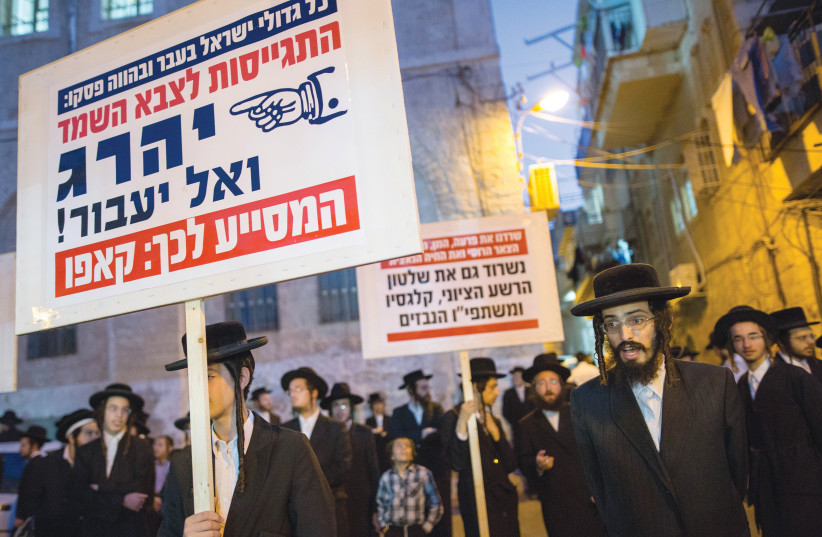Amid the scenes of war and the horrors we have witnessed since our October 7 “Black Shabbat,” a ray of light has pierced the darkness: the activation of Israeli civil society.
A substantial portion of the activity comes from haredi (ultra-Orthodox) organizations and volunteers. Moreover, there has been willingness, even a desire, on the part of hundreds of haredim to enlist in the IDF and serve their country. Although even in wartime, tensions between non-haredi Israelis and the haredim may not disappear, the green shoots of change may constitute a leap forward in easing those tensions and generating more equitable haredi conscription rates. The Hamas pogromists thought that Israeli society was weak, but the terrible massacre in the South gave rise to a rapid and miraculous mobilization.
Civil-society organizations and ordinary citizens have stepped up to contribute in all possible ways: From helping security forces rescue civilians in the combat zone during the early days to providing assistance to evacuees from the southern towns; from equipping the IDF to supporting the medical forces, and much more.

Haredi organizations and citizens have been among those reporting for action. They feel, as Israelis, a desire to contribute to the war effort. This has gone well beyond the sacred work of the ultra-Orthodox ZAKA (the disaster victim identification organization) and its volunteers – work made exceptionally difficult and challenging by the massacre’s monstrous proportions, even for its most veteran volunteers.
A highlight of all this activity in terms of will, if not scope (at least for now), has been a series of initiatives from within the haredi community to encourage its members to sign up for wartime reserve service. These initiatives have, in a certain way, been adopted by the IDF’s Human Resources department, which has issued an appeal to people in various occupations to join the cause.
Even in routine times, haredi society is characterized by high rates of volunteerism. But the nature of that activity at this time, and especially the willingness of haredim to undergo military training and participate in the country’s defense, even in a limited way under the present circumstances, is extraordinary – nearly unprecedented.
Haredi mobilization
The last time there was some degree of haredi mobilization was during the War of Independence, 75 years ago. This “second war of independence” now being waged by the State of Israel can and should be a tipping point on many levels. One of the crises that was lying in wait for our political system, and with which we would now be preoccupied if not for the war we are in to defend our homeland, was haredi IDF recruitment and the need to regulate it by law. The atrocities that started this war and the awareness that the entire country could come together as a unified front in the face of a large force determined to annihilate us, have made it quite clear that a “people’s army” is our only way to survive.
The ability to sustain the people’s army depends on the conscription of the majority of haredim into the IDF in service to their country. This is because the majority of Israelis, who do enlist and serve, will no longer put up with the ever-increasing number of draft-eligible citizens being exempted simply because they are haredi. While until now the haredim have struggled against this possibility and rejected it out of hand, after the war we can expect and hope for a change.
Like all other Israelis, the haredim saw the horrors with their own eyes, and the need for a military protective wall was driven home to them just as it was seared into the consciousness of us all. The haredi wartime mobilization, and the desire to serve in the army and in quasi-military settings, testify to the green shoots of change that will continue to grow and blossom. After the war, this will enable a historic change that could lead to the healing of a difficult rift that has bedeviled Israel for decades.
The writer is vice president of the Jewish People Policy Institute and a lecturer in law at the Peres Academic Center.
